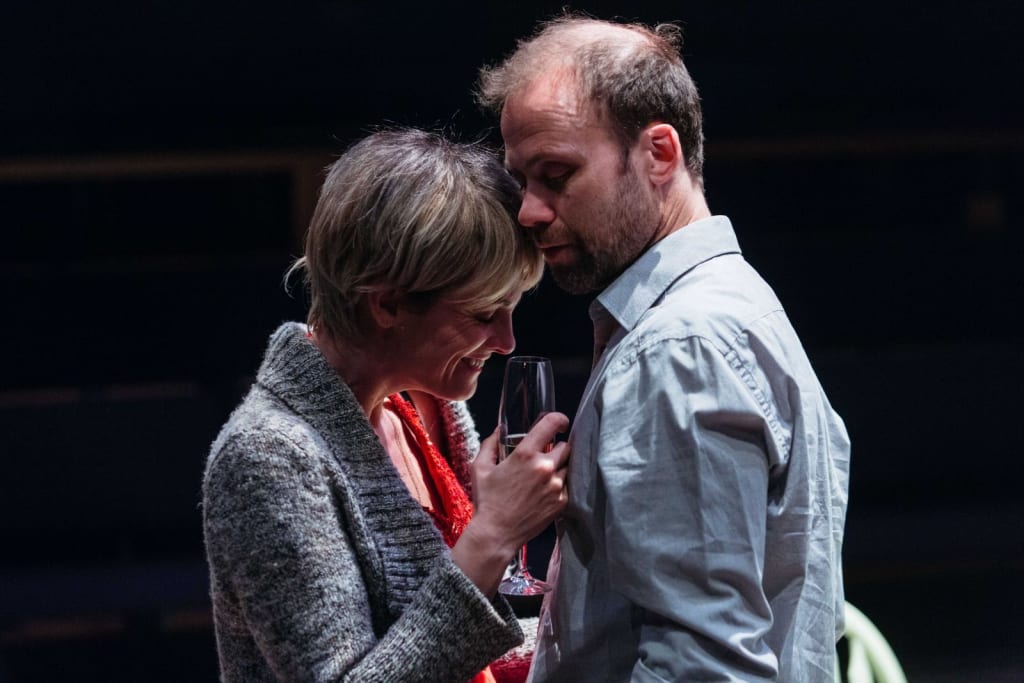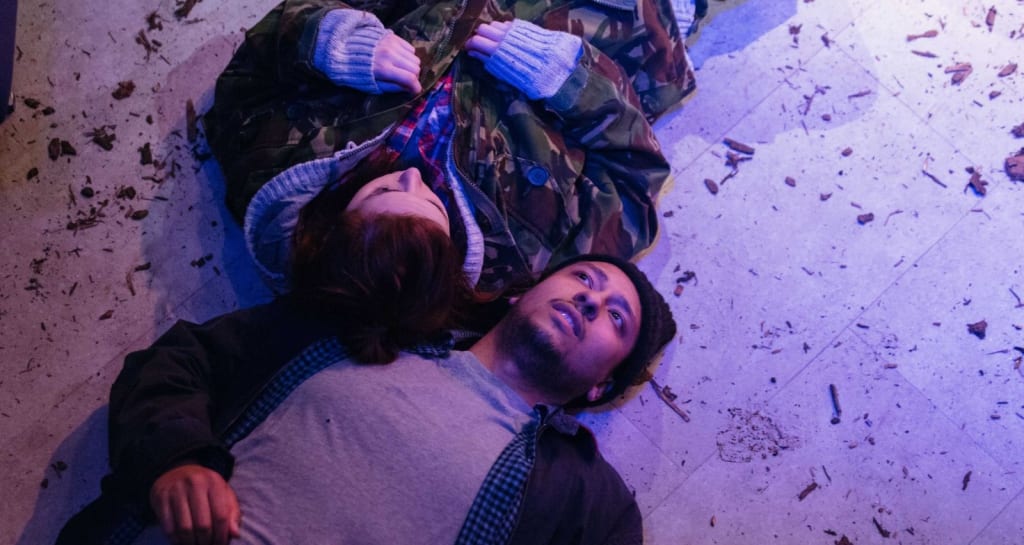The challenges and often gritty realities of English rural life are not examined often enough by contemporary playwrights, and Joe White deserves credit for going beyond the bucolic, nostalgic haze to examine what family life is actually like when the Shropshire Lad is abruptly taken out of the picture. However, the result is an uneven achievement, very much work still in progress, which ultimately relies a bit more than it should for its undoubted impact on the skills of the four excellent actors at its heart and the casting team who selected them.
As always at the Orange Tree Theatre, the audience feels right at the heart of the action, and the actors can play their parts without over-projecting voice or gesture. The play is located in Shropshire to run straight through one Sunday in early May, and the set by Cécile Trémolières captures well through selective suggestion the verdant nature of the landscape, while retaining the flexibility needed to shift from a river bed, graphically turned to water in the opening scene, to a shabby pub garden and finally a farmhouse interior. The space is used inventively and flexibly by director Guy Jones, with the exception of a scene right near the start which is crammed into one corner somewhat confusingly.
In essence this is a family drama, and a slow-burn study of the impact of grief, the dimensions and nature of which only gradually become apparent through the evening. However the family structure is approached obliquely because most of the early scenes are dialogues between only two characters who explore their relationship to each other above all: only gradually is the detail of the picture sketched in and some of the connections between the characters are never fully explicated. Much of the best writing takes the form of individual confessional speeches, beautifully paced and modulated by the actors, which seem suited as much to a radio play as to a fully staged drama. Perhaps this play is better fitted to that medium, where the imagination can roam between the lines and compensate for the relative absence of plot and visual action.
The stand-out performance here is from Evelyn Hoskins as Loops, the brusque, apparently hard-nosed, daughter in combat fatigues who is determined to find a boy-friend before the day is out. This is a finely calibrated and multi-layered portrayal that is all the better for not softening its rebarbative edges too soon, and all the more moving when we finally understand why she is as she is. Hoskins is well matched by Irfan Shamji’s presentation of the role of Harry, a boy from Wolverhampton, currently working in the local pub. Again he is revealed to have his own insecurities and complicated backstory, which are only slowly revealed. Their awkward intimacy, born of shared bruises from their past, is delicately realised and the emotional centre of the evening.

The characters of the two parents are less fully realised. By placing them in juxtaposition with Harry rather than with each other or their daughter, we have the benefit of delayed and complicated revelations, but at the expense of learning enough about their relationship with each other and with their daughter. Simon Scardfield does a lot off the speech with the inarticulate but deeply felt role of the father, Ben, who is some ways is the most damaged of all by the events that have preceded this particular Sunday. And Niky Wardley draws together the various strands of the mother’s character in her depiction of Cat, and ultimately makes of her a much more likeable character than she appears to be at first sight.
In a very specific rural drama such as this it is important that accents are correct, and credit is therefore due to dialect coach Tim Charrington for ensuring that Shropshire and Wolverhampton were correctly distinguished from one another. And as usual at this theatre, lighting, sound and costume were also exactly as they should be.
There are echoes of Jerusalem here in points made about the state of England and the hollowed out nature of rural employment and opportunities. But the author’s command of gentle humour and a persistent carefully controlled undertow of sadness marks out an individual voice to watch out for in future.

